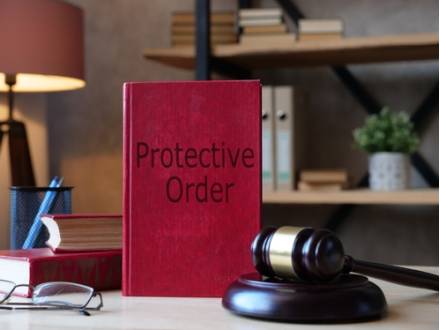Arlington Heights, IL 60005
How Does an Order of Protection Work During an Illinois Divorce?
 If threats, harassment, or abuse occur before or during the divorce process, an order of protection can help you stay safe while your case moves forward. These court orders can limit contact, control who lives in the home, and even affect parenting time. An experienced Arlington Heights, IL divorce lawyer can help you understand how these orders work and explain your options.
If threats, harassment, or abuse occur before or during the divorce process, an order of protection can help you stay safe while your case moves forward. These court orders can limit contact, control who lives in the home, and even affect parenting time. An experienced Arlington Heights, IL divorce lawyer can help you understand how these orders work and explain your options.
What Is an Order of Protection in Illinois?
An order of protection is a legal tool designed to protect people from abuse by a family or household member. According to the Illinois Domestic Violence Act, abuse includes physical harm, harassment, intimidation, and interference with personal liberty. These orders can direct the abusive person to stop contacting you, leave the home, or stay away from your workplace or your child’s school.
Depending on your situation and the level of urgency, the court may issue one of the following types of orders of protection in Illinois:
-
Emergency Order of Protection (EOP): This can be issued the same day you file. It does not require the other party to be present and usually lasts up to 21 days.
-
Interim Order of Protection: This type of restraining order lasts between the emergency order and the full court hearing. The other person must be officially notified before it takes effect.
-
Plenary Order of Protection: This is issued after a full hearing where both sides can present evidence. It can last up to two years and can be renewed if needed.
While a protective order can be a powerful legal safety measure, it is not always enough to stop violence. In some cases, filing may escalate tension with an abuser. You know your situation best. If you ever feel unsafe or believe your life or your child’s life is in danger, go somewhere secure, such as a shelter or a trusted family member’s home, and contact the police right away.
Can You File for an Order of Protection During a Divorce?
You can request an order of protection against your spouse even while your divorce is still pending. According to 750 ILCS 60/210, you may file your request in the same court where your divorce is being handled. The judge can review both matters together if they involve the same facts or people.
If your spouse threatens or harms you during the divorce, the judge may issue temporary restrictions right away and later adjust them as part of the final divorce judgment.
How Does an Order of Protection Affect Custody and Parenting Time?
When children are involved, the court must put their safety first. If there is evidence of abuse or the risk of harm, a judge can restrict or suspend parenting time. Under 750 ILCS 5/602.7, the court will always consider the child’s best interests before allowing or restricting parental contact.
A protection order can require supervised visitation, safe drop-off locations, or communication through neutral channels. These safeguards ensure that children are not exposed to dangerous or emotionally charged environments during the divorce.
Schedule a Free Consultation With a Rolling Meadows, IL Order of Protection Lawyer
At Law Offices of Donald J. Cosley, clients receive personal attention and direct communication, important considerations when you are dealing with something as sensitive as an order of protection. Attorney Don Cosley personally manages every case from start to finish. When you have questions, you will speak directly with him. You do not have to worry about communicating through a paralegal or assistant. His hands-on approach helps ensure that every client receives trusted guidance and strong legal protection.
If you are considering filing for an order of protection or have questions about how it may affect your divorce, contact our Arlington Heights, IL divorce lawyer today at 847-253-3100 for a free consultation.












